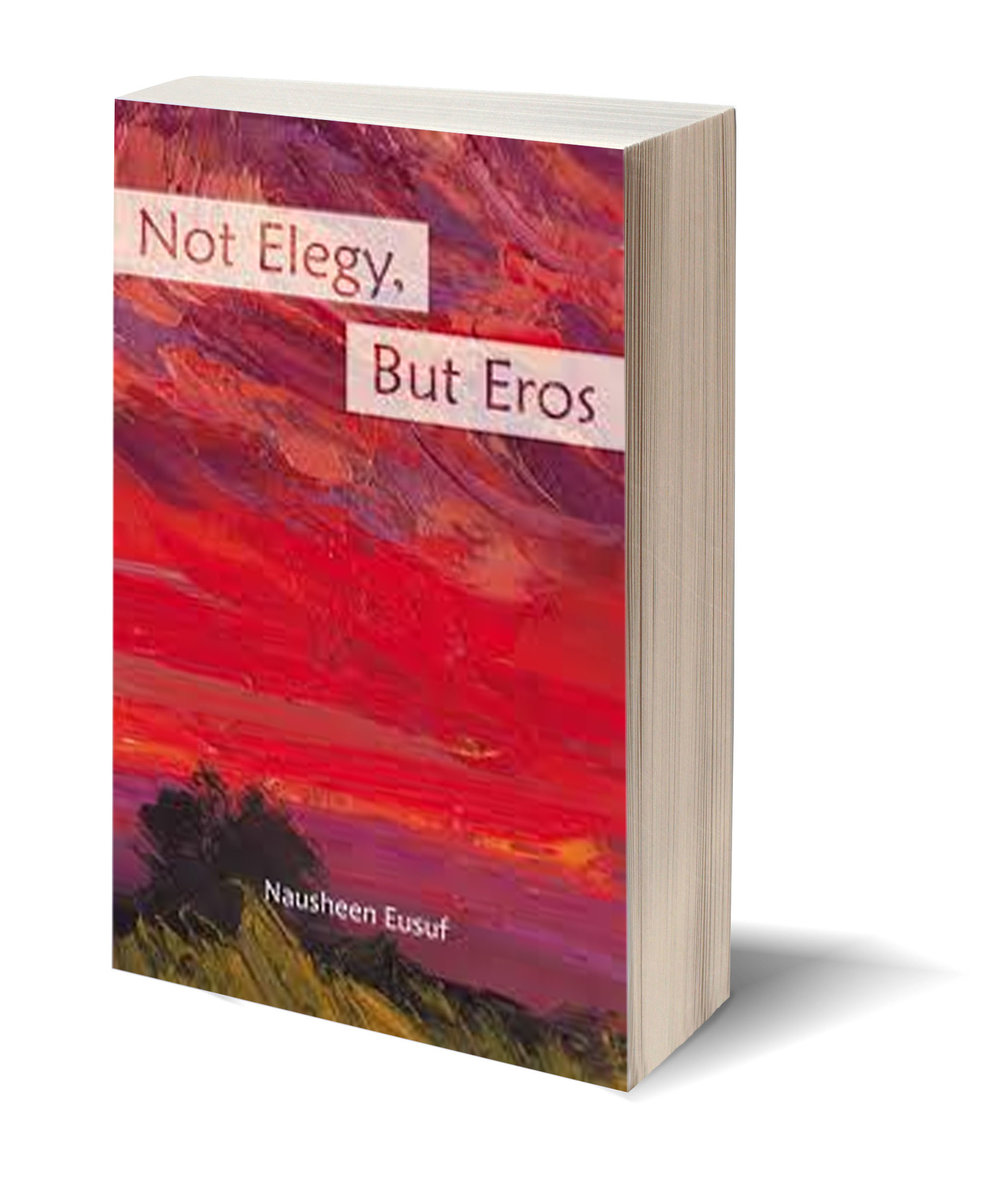Not Elegy, But ErosBy Nausheen Eusuf
NYQ Books |
 |
|---|
Reviewed by Norene Cashen
Nausheen Eusuf's debut poetry collection Not Elegy, But Eros could have just as easily been titled Not Eros, But Elegy. The poems in it mourn and eulogize, not only the dead, but also the living. At times the collection suspends life in amber, speculating about its inevitable end. It seems to be more about looking beyond erotic love and desire to see things as they actually are, not as we wish them to be.
The title poem is a tribute to an LGBT activist murdered in Bangladesh in 2016. It's also a series of heartbreaking, first-person confessions:
I have loved my brothers and comrades.
I have blessed the new year and painted
the town with all the colors of my love.I have faced the flash of steel, the howl
of unholy voices. But it was their eyes,
their hard unloving eyes, that undid me.
The elegies to the living are just as powerful and poignant. They take the reader on flights of imagination into what the speaker imagines mourning will be like. But the deaths haven't yet occurred. So the poems are interrupted, in a sense, by the presence of their subjects, who are vividly engaged in their imperfect business of worrying, speaking, remembering, and being.
The poet begins the four-part "Elegy for the Family Romance" with "1. Elegy for my mother, still alive, so fearful that she tracks an airplane's progress for hours across a screen when her children travel."
Eusuf, a native of Bangladesh and a current PhD candidate in English at Boston University, has funneled all of this passion and raw emotion into a scaffold of formal variety, exploration, philosophy, culture, and literary theory. Her approach is informed, sometimes serious, and often intellectual. But it has its turns of sharp wit and casual references to popular culture. In "Watching Hitchcock's Psycho," for example, the poet reports:
No. Thriller. A suitcase full of cash,
a rearview car chase across state lines,the unshakable base of a predatory cop.
Will she get away? Caught? Raped?
Another poem called "Shining Shoes" speaks to the dead. This time it's a father. That same profound sadness lingers in it, leaving questions unanswered and agonies unresolved: "Now that he is ten years gone, I recall how / quiet was his love, how mute his farewell."
Elegy upon elegy, grief upon grief, Eusuf makes a catalog of both current and impending loss. The patriarch appears again in "A Prayer to my Father," which echoes "The Lord's Prayer" with its repetition of the word "forgive," its hallowed formalities, and its nod to Dylan Thomas: "When you are gone into that good night / beyond the ignominy of the flesh, forgive / our thankless hearts, our brutish love."
Eusuf's poetry is ardent, intelligent, and bravely literary. It's informed and tempered but not coldly academic. The unique thing about these elegies is that they speak to loss and grief as well as to a renewed appreciation for the things we still have.
